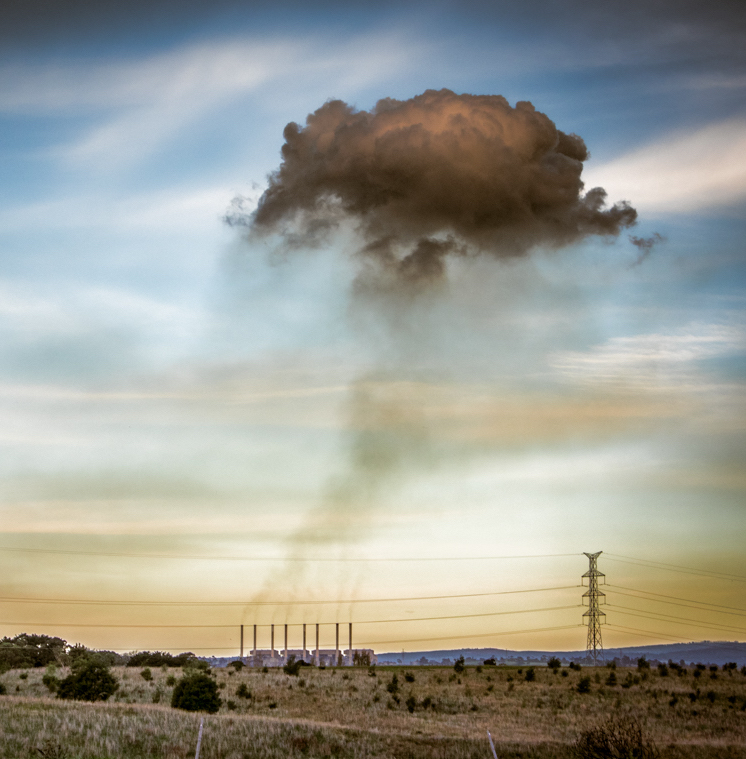
Hazelwood Power Station was a brown coal burning power station located in the heart of the Latrobe Valley in Victoria, Australia.
Built between 1964 and 1971, the 1,600 megawatt capacity power station was made up of eight 200 MW units, and, prior to its closure on 29 March 2017, supplied up to 25% of Victoria's electricity and more than 5% of Australia's total energy demand.
At 1,558 kg of CO2 for each megawatt hour of electricity 'sent out', Hazelwood was one of the highest polluting power stations in the world.
Every 5 minutes the Australian Energy Market Operator publishes the average energy generated by each significant power station in the National Electricity Market. You can dive deep into this data with the fantastic Australian Renewable Energy Mapping Infrastructure project.
For a background on emissions intensity of coal fired power stations, including the emissions factor of 1,558 kg CO2/MWh for Hazelwood, see this excellent FactCheck by Dylan McConnell.
For raw information on the other nasty emissions (hydrochloric acid, nitrogen oxides, sulfur dioxide, lead, sulfuric acid, arsenic and, unfortunately, much more) check out the National Pollutant Inventory. Here we use the 2013 reported figures — the numbers were much worse in 2014 due to the month-long mine fire in 2014, the last year for which figures are available.
Hazelwood is the tenth coal-fired power station to retire since 2012. It joins Wallerawang (1000 MW), Energy Brix (170 MW), Playford (240 MW), Redbank (151 MW), Anglesea (150 MW), Collinsville (190 MW), Munmorah (1400 MW), Northern (520 MW), Swanbank B (480 MW).
A great place to start is Giles Parkinson's excellent site RenewEconomy.
Future Super is Australia’s first fossil fuel free super fund. It’s easy to join and takes only 2 minutes online.
Future Super does not invest in any fossil fuel companies, or in companies providing significant services or financing to fossil fuel projects. Future Super also doesn't invest in a range of other harmful industries, including detention centres and live animal export. Instead, they look for positive investments such as renewable energy, healthcare and IT.
No. While it's true that we don't have any more cheap gas and there are some real issues with our energy markets, we're not about to run out of energy this year, or next, or the year after.
But as long as our politicians keep treating energy as a political plaything, we all stand to lose.